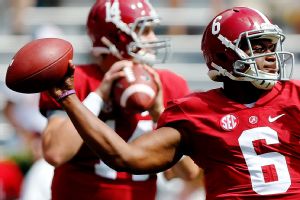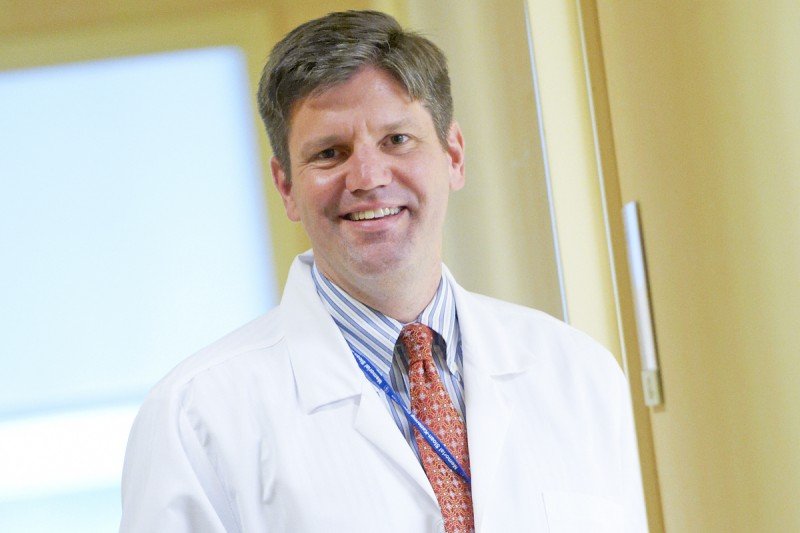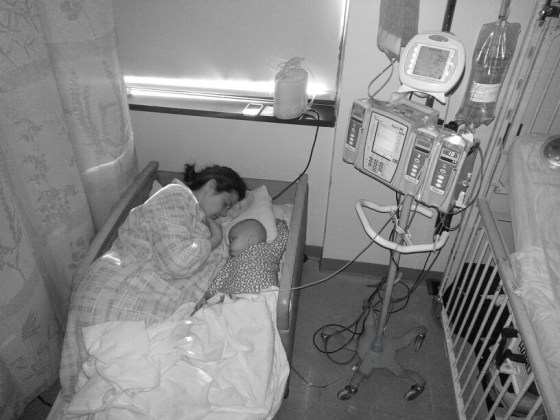
Sometimes there is more to sports than who wins or loses, and sometimes even the most heated rivalry in college football can be put aside for the greater good.
Saturday was one of those times.
When Alabama quarterback Blake Sims took the field against Florida, he wore a new accessory on his right wrist, a purple bracelet that simply read “Kayla.” It was a tribute to Kayla Perry, a 19-year-old college student who was diagnosed with neuroblastoma, a type of pediatric cancer that typically presents itself in very young children and infants, 18 months ago.
Perry is currently a freshman at Auburn University.
“Hey guys, you know I’m an Auburn Tiger, but even college rivalries can come together when it matters,” Perry posted Saturday on Facebook with a picture of Sims. “Many thanks to University of Alabama QB Blake Sims for seeing my story, and asking to wear my bracelet this week, and today, especially!”
With the bracelet on, Sims played the best game of his college career. The senior threw for 445 yards and four touchdowns in the Crimson Tide’s 42-21 win over Florida.
…
The two haven’t met yet, but Perry has a mutual acquaintance who is trying to set up a meeting. In the meantime, she’s just happy that by wearing the bracelet, Sims was able to raise awareness to childhood cancer research and the lack of funding that is going into it.
“We really want people to see this and see this as a problem and take a stand and step up and do something,” Perry said. “When people like Blake step up and they show their support for a cause, it makes other people want to get involved, too. So we’re really glad that he did that and thankful.”
Sims isn’t the only player to show support. Auburn wide receiver Sammie Coates wore the same bracelet last Thursday when the Tigers played Kansas State, and his head coach Gus Malzahn has asked to meet with Perry on Tuesday.
Perry, who launched a website to raise funds for pediatric cancer research on Sept. 1, has already raised over $50,000, her mother said.
Read Moree…






